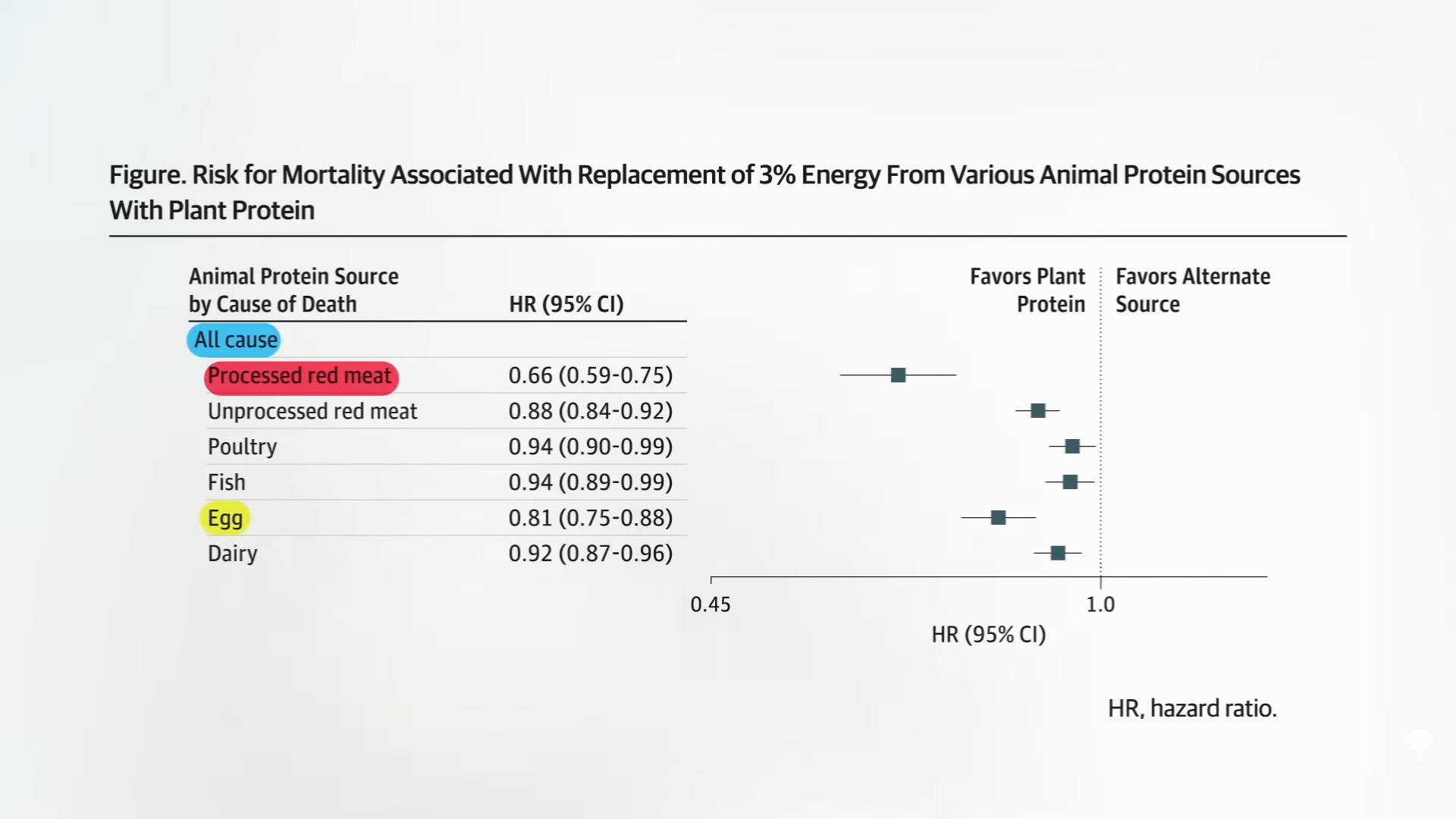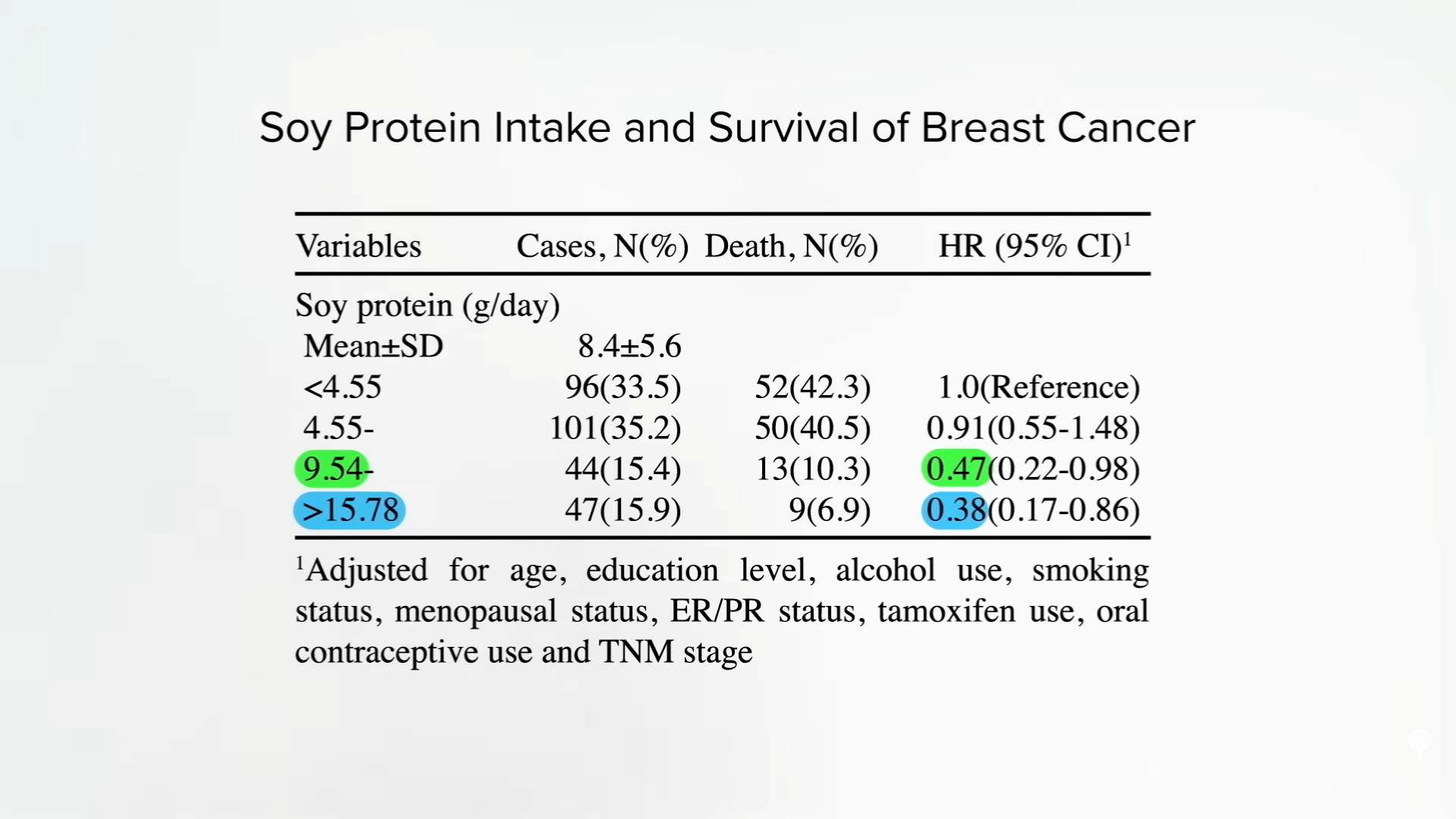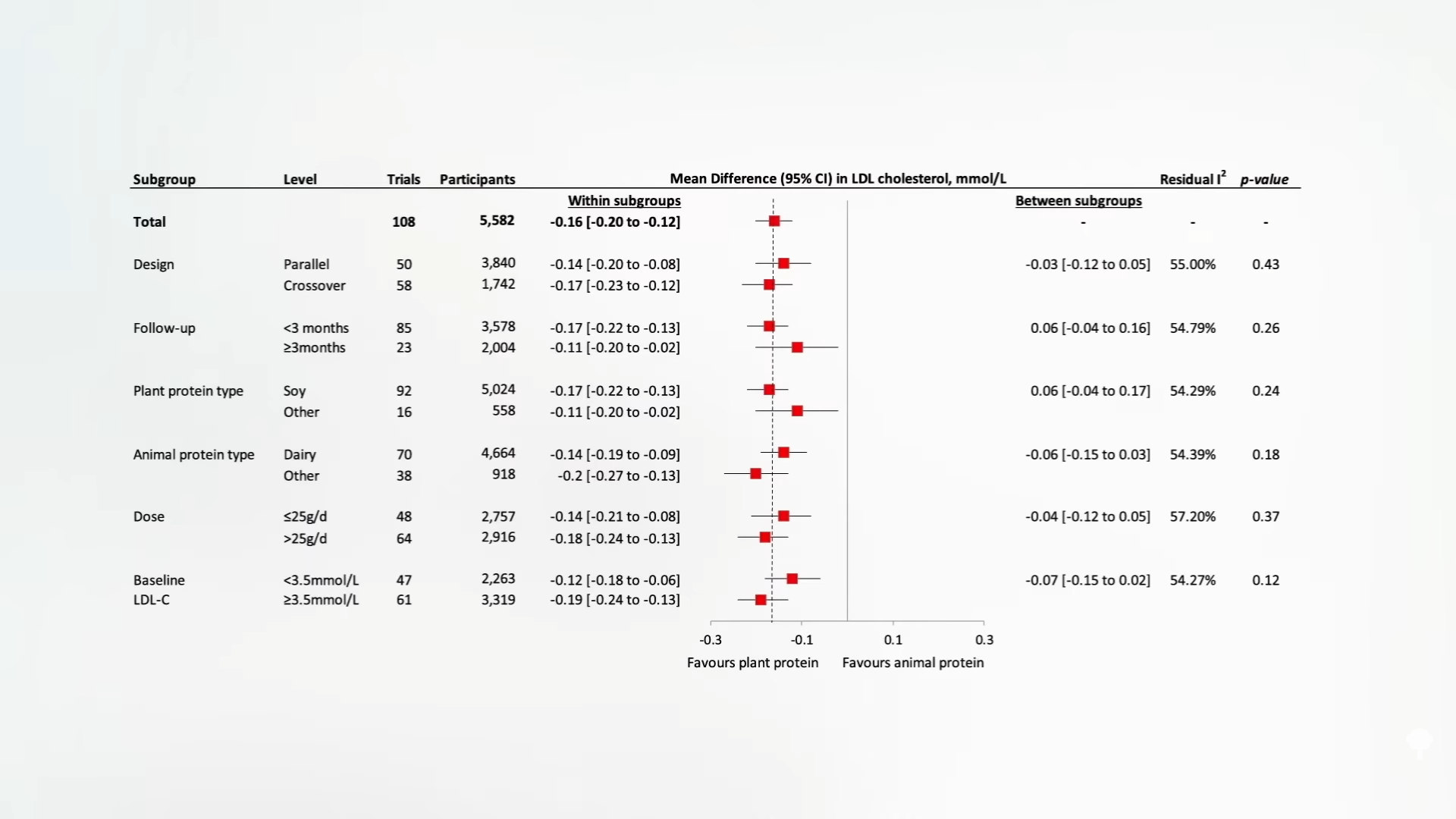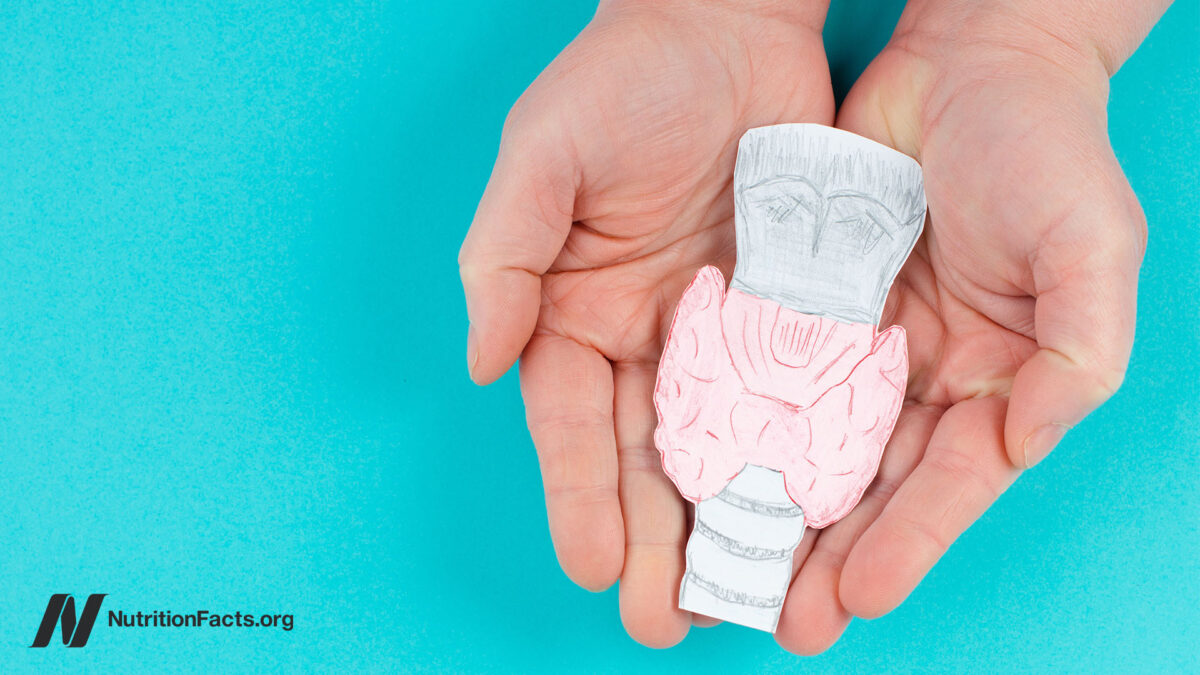What are the different impacts of plant protein versus animal protein, and do the benefits of plant proteins translate to plant protein isolates?
Are plant-based burgers healthy or not? The answer is: Compared to what? Eating is kind of a zero-sum game where every food has an opportunity cost. Each time we put something in our mouth, it’s a lost opportunity to eat something even healthier. So, if we want to know if something is healthy, we have to compare it to what we’d be eating instead. For example, are eggs healthy? Compared to a breakfast sausage link, yes, but compared to oatmeal? Not even close. Sausage is considered a Group 1 carcinogen. We know that consumption of processed meat causes cancer. Each 50-gram serving a day (equal to about one or two breakfast sausages) has been linked to an 18 percent higher risk of colorectal cancer. In fact, the risk of getting colorectal cancer from eating those daily sausages is about the same as the increased risk of lung cancer we’d get from breathing in secondhand cigarette smoke living with a smoker. So, compared to sausage, eggs are healthy, but compared to oatmeal, eggs are not.
When it comes to Beyond Meat and Impossible Foods plant-based burger patties, they may be better in that they have less saturated fat than conventional meat burgers, but if you really want less saturated fat, plant-based meats are no match for unprocessed plant foods, such as lentils and beans. And lentil soup or a bean burrito could certainly fill the same culinary niche as a lunchtime burger. But, if you are going to have some kind of burger, it’s easy to argue that plant-based versions are more healthful, as seen below and at 1:43 in my video Plant-Based Protein: Are Pea and Soy Protein Isolates Harmful?.

There is a sodium issue with those plant-based patties, though, and they aren’t that much lower in saturated fat. That is due to coconut oil, which is as bad as animal fat, so there isn’t much advantage on that front. I am excited to say that Beyond Meat has since significantly improved their formula since I made that graph for UBS. Now Beyond has 310mg of sodium and only 2 grams of saturated fat thanks to a switch from coconut oil to avocado oil.
The total protein is similar across the board. Does that matter? Is there any advantage to eating protein from plants over animals? Let’s look at the association between plant and animal protein intake and mortality. In the twin Harvard cohorts, which followed more than 100,000 men and women over decades, researchers wrote: “After adjusting for other dietary and lifestyle factors, animal protein intake was associated with a higher risk for mortality, particularly CVD mortality,” that is, dying from cardiovascular disease, “whereas higher plant protein intake was associated with lower all-cause mortality,” meaning a lower risk of dying from all causes put together. So, “replacing animal protein of various origins with plant protein was associated with lower mortality,” especially if processed meat and egg protein were replaced, as they were the worst.
When it comes to living a longer life, plant protein sources beat out each and every animal protein source. Not just better than bacon and eggs, but better than burgers, chicken, turkey, fish, and dairy protein, as shown here and at 2:53 in my video.

Together with other studies, these “findings support the importance of protein sources for the long-term health outcome and suggest that plants constitute a preferred protein source compared with animal foods.” Why? Well, “unlike animal protein, plant protein has not been associated with increased insulin-like growth factor 1 levels.” (IGF-1 is a cancer-promoting growth hormone.) Soy protein is similar enough to animal protein that, at high enough doses, like eating two Impossible burgers a day, our IGF-1 may get a bump. But the only reason we care about IGF-1 is cancer risk, and, if anything, “higher soy intake is associated with a decreased risk of breast and prostate cancer.”
A recent systematic review and meta-analysis found that “soy protein intake was associated with a decreased risk in the mortality of breast cancer,” for instance. “A 12% reduction in breast cancer death was observed for each 5-g/day increase in soy protein intake.” But, as shown below and at 4:07 in my video, the high-soy groups in these studies were on the order of more than 16 grams a day, which was associated with an incredible 62 percent lower risk of dying from breast cancer. More than 10 daily grams of soy protein may be good, associated with nearly halving breast cancer mortality risk, and getting more than 16 grams a day may be better, which is like one Impossible burger a day. (We simply don’t know what happens at consumption levels far above that.)

Plant protein has also “been linked to lower blood pressure, reduced low-density lipoprotein [LDL cholesterol] levels, and improved insulin sensitivity. Substitution of plant protein for animal protein has been related to a lower incidence of CVD [cardiovascular disease] and type 2 diabetes.” Indeed, 21 different studies following nearly half a million people found that “high…animal protein intakes are associated with an increased risk of T2DM [type 2 diabetes], whereas moderate plant protein intake is associated with a decreased risk of T2DM.” Those were just observational studies, though. The researchers tried to control for other dietary and lifestyle factors, but cause and effect can’t be proven until it’s put to the test.
Enter “Effect of Replacing Animal Protein with Plant Protein on Glycemic [Blood Sugar] Control in Diabetes: A Systematic Review and Meta-Analysis of Randomized Controlled Trials.” Researchers found that replacing only about a third of protein from animal sources with plant sources yielded significant improvements in long-term blood sugar control, fasting blood sugars, and insulin.
Same with cholesterol. A systematic review and meta-analysis of randomized controlled trials on the effect of plant protein on blood fats again found that replacing animal protein with plant protein decreases LDL cholesterol. What’s more, this benefit occurs whether you start out with high or low cholesterol, whether you’re replacing dairy, or meat and eggs, and whether you’re swapping in soy or other plant proteins, as seen here and at 5:31 in my video.

We’ve known about soy’s beneficial effects on cholesterol for nearly 40 years, but other sources of plant protein can be helpful, too. However, in the case of plant-based burgers like Beyond Beef and the Impossible Burger, beef isn’t being replaced with beans. Those products are mostly isolated plant proteins—mostly pea protein isolate in Beyond Meat products and concentrated soy protein in Impossible Foods products. If you isolate the plant proteins themselves, will you still get benefits? Surprisingly, yes. Check it out.
The researchers concluded: “Interestingly, our…analyses did not find a significant difference between protein isolate products and whole food sources for any given endpoint, suggesting that the cholesterol-lowering effects are at least, in part, attributable to the plant protein itself rather than just the associated nutrients.” So, it isn’t just because plant protein travels with fiber or less saturated fat. Plant proteins break down into a different distribution of amino acids. So, if you give people arginine, an amino acid found more in plant foods, that alone can bring down cholesterol, for example. And the plant protein concentrates used in these meat-free products aren’t just pure protein; they retain some active compounds, such as phytosterols and antioxidants, which also can have beneficial effects.
This is the third in a series on plant-based meats. If you missed the first two, see The Environmental Impacts of Plant-Based Meat Substitutes and Are Beyond Meat and the Impossible Burger Healthy?.
Check the related posts below for the upcoming videos on plant-based meats.







